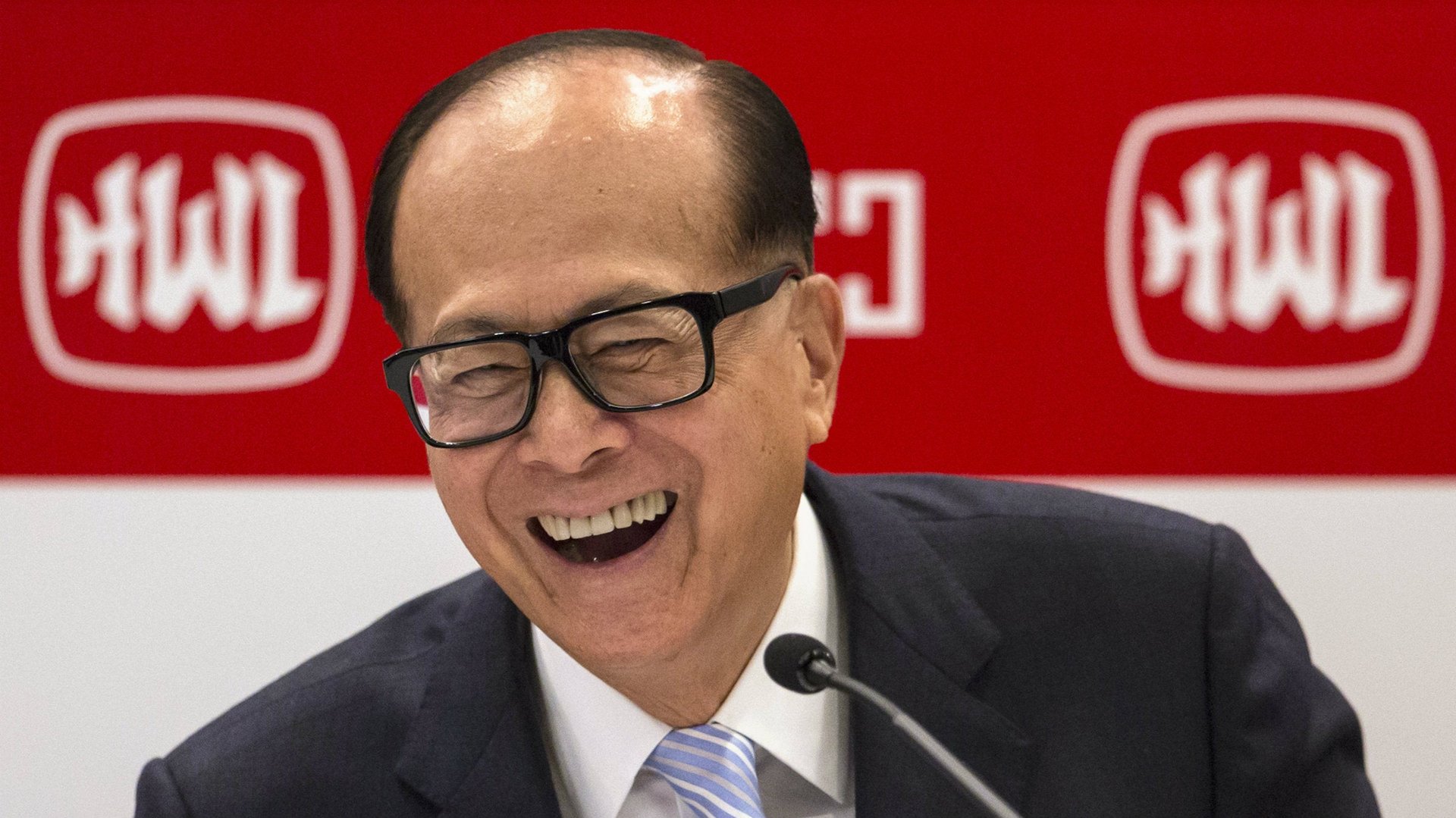A $15 billion O2 buyout is the latest jewel in Li Ka-Shing’s British utilities empire
Li Ka-Shing, Hong Kong’s “Superman” octogenarian investor, is continuing his “sell China, buy Europe” strategy with a massive deal with will transform his Hutchison Whampoa holding company into Britain’s largest mobile telecom provider. In a statement to the Hong Kong Stock Exchange, Hutchison said it would pay £9.25 billion ($13.88 billion) in cash to Spain’s Telefonica for O2 and an additional £1 billion after the deal closed if the combined cash flow of the two companies reaches a preset level.


Li Ka-Shing, Hong Kong’s “Superman” octogenarian investor, is continuing his “sell China, buy Europe” strategy with a massive deal with will transform his Hutchison Whampoa holding company into Britain’s largest mobile telecom provider. In a statement to the Hong Kong Stock Exchange, Hutchison said it would pay £9.25 billion ($13.88 billion) in cash to Spain’s Telefonica for O2 and an additional £1 billion after the deal closed if the combined cash flow of the two companies reaches a preset level.
It’s the latest in a string of iconoclastic acquisitions by Li in outside of Asia, and in Britain in particular. Li isn’t buying “trophy assets” like hotels or high-end retail brands, which often draw wealthy investors from emerging markets. Instead, he’s amassing a portfolio of nuts-and-bolts companies that are integral to the daily life of many citizens in the countries where they operate. The net result is a menu of asset with less flash, and less volatility than any other portfolio being put together by his emerging market peers.
In recent years, Li’s Power Assets has purchased:
- large stakes in North Gas Networks, which owns north England’s gas distribution network
- Seabank Power, an electricity generator in Bristol
- EDF’s electricity distribution network for London, and east and southeast England
- Wales & West Utilities Limited, the gas distribution network in Wales and southwest England.
Companies controlled by Li also paid $3.9 billion in 2011 for Northumbrian Water, which provides water and sewage service to 2.7 million Brits.
Earlier this week, Li’s CK Investments bought Eversholt Rail Group, which owns about one-third of the UK’s passenger rail cars, in a deal valued at $3.3 billion.
The strategy isn’t confined to Britain. In May, companies controlled by Li acquired Australian gas distributor Envestra for A$2.4 billion ($1.93 billion). And Cheung Kong Infrastructure and Power Assets, both controlled by Li, are reportedly bidding for the Swedish power distribution assets of Finnish electricity company Fortum, and have borrowed as much as $6 billion for the deal.
Telecommunications, while not as heavily regulated as electricity, power and water companies, are often solid revenue generators that rely on large, stable customer bases. In Britain, stiff competition in the telecom sector has driven down profits, but today’s deal effectively eliminates one of four companies in the industry.
The O2 deal follows Li’s reorganization of his sprawling corporate empire into two listed companies, one focusing on property and the other on everything else, earlier this month. That reorganization almost instantly added some $2.3 billion to Li’s personal fortune, Forbes reported.